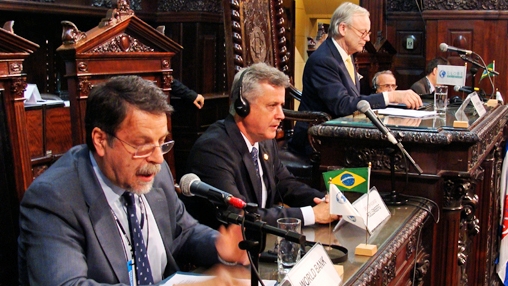Gathered in the city of Rio de Janeiro, 300 parliamentarians from 85 countries made a commitment to help their governments pursue the objectives of Rio+20 and Rio-92 conferences, and use legislation to promote a greener growth for all.
After three days of meetings at the World Summit of Legislators, promoted by GLOBE International – a worldwide parliamentarian network for the environment –, they signed a protocol aimed at addressing gaps in the original Rio process.
“The goals set during the Rio-92 Conference could not be reached due to the lack of participation of the Legislative Branches of the participating countries”, stated Rodrigo Rollemberg, Brazil’s negotiator at the summit.
President of the Environment Commission at the Brazilian Senate, Rollemberg added: “The World Summit of Legislators engaged parliamentarians from all over the world. Back home, they will introduce bills, argue for better environmental budgets, and monitor their governments’ implementation of Rio agenda.”
By signing the protocol, the legislators also agreed to push for the incorporation of natural capital into government accounting procedures.

